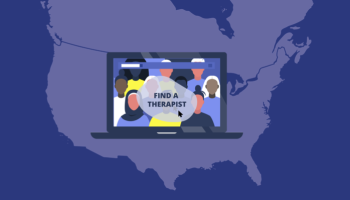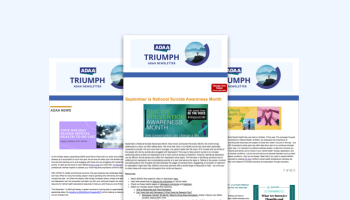Succeeding in Your First Job Application, Part 2
Succeeding in Your First Job Application, Part 2

1) Certainly experience is a major factor in making a job application impressive. However, two factors that are particularly appealing are the applicant’s ability to convey eagerness to learn and genuinely communicating a desire to be involved in the prospective employer’s work. Applicants who communicate in a diplomatic fashion that they are familiar with your work while simultaneously highlighting good experience and a desire to take their own program of research and practice to the “next level” are particularly ideal. For example, a recent applicant noted that though they had a very solid conceptual foundation for the application of CBT, they are particularly excited about more supervisory experiences that implement “real world exposures” with children in particular. Needless to say, they were hired since my own work focuses on adolescents and adults. This conveys fervor for enhancing one’s existing abilities while recognizing limitations that could be enhanced by a prospective employer.
Along these lines, conveying a lack of understanding for the nature of a prospective employer’s research or practice gives the impression that one is merely seeking a position despite the employer. This does, in fact, occur and usually results in a lack of acceptance.
2) As a former academician, I am acutely aware of how many applicants presume that a group of cloaked faculty members secretly meet and decide the fate of prospective students. This is indeed a myth. In my experience, this is equally true when joining an existing private practice. If, for example, a psychologist were attempting to join my practice (which is multidisciplinary in nature), I would personally review their CV, looking for areas that complement my own work and look for a potential niche. If these criteria were met (and of course very good research and practice experience matter), I would get to know the individual over lunch and find out more about the potential applicant in a collegial fashion. In many cases, I am looking for an applicant who will be a colleague for years to come so it behooves you to be personable but prudent. Though my colleagues within my practice (primarily psychiatrists) would likely want to meet the applicant, they would trust my judgment in this regard due to our shared experiences as psychologists.
3) Personal connections are very important to make. As aforementioned, many applicants presume that when applying to a program (or a practice) that multiple individuals will often simultaneously review their application. Though this is often true depending on the employer, it remains important to make a personal connection with the employer, supervisor, practitioner, or researcher whose work is appealing. Making a personal connection is the easiest way for a prospective employer to remember you while having the additional benefit of distinguishing you from other candidates who likely have similar credentials. Making the personal connection also communicates a strong desire for working with the particular individual, practice, or program, as opposed to merely conveying the message, “Hey, a job in the field would be appreciated. Thanks.” Since you are contacting this specific employer for a reason (I hope), it would be wise to convey your rationale for doing so in a diplomatic fashion.
4) Though entering private practice in itself is not extremely difficult, being relatively successful can be. Succeeding in private practice takes time, effort, innovation, and focus. You must first ask yourself, “How successful do I want to be in private practice?” A successful financial advisor once said, “To live like no one else, you have to live like no one else.” This is essential advice when entering private practice. Though mental health professionals work together to alleviate symptoms of mental illness, we are also in the market for the same clients who, in most instances, are unaware of what separates a “good” practitioner from a “pretty good” practitioner. First, be very strategic about publishing empirical work in a niche area that is consistent with your practice. Though “anxiety disorders” sound general to those of us who regularly treat anxiety disorders, this would still be considered “specialized” to most clients seeking mental health services, particularly when you have published work in this area. Clients want a provider who speaks to their specific problem as opposed to a provider who claims to treat anything from agoraphobia to zemmiphobia. As such, to stand out in an often-crowded market, your empirical work must be highlighted. Secondly, having your own website is a must. Your website provides a glimpse into your empirical work, experiences, and can ultimately determine whether or not a client will “hire” you. Third, (and in some sense the most unique advice), establish an online/social media presence. Engagement in social media (particularly Twitter) and public education through local and national media outlets will not only boost your web presence but also underscore you as credible in your work. There are a number of producers in mainstream media who are eager to here about empirical work that is translational in nature. Will they call you?
/learn-from-us/from-the-experts/blog-posts/professional/succeeding-your-first-job-application-part-3">Read Succeeding in your first job application, Part 3 here.











